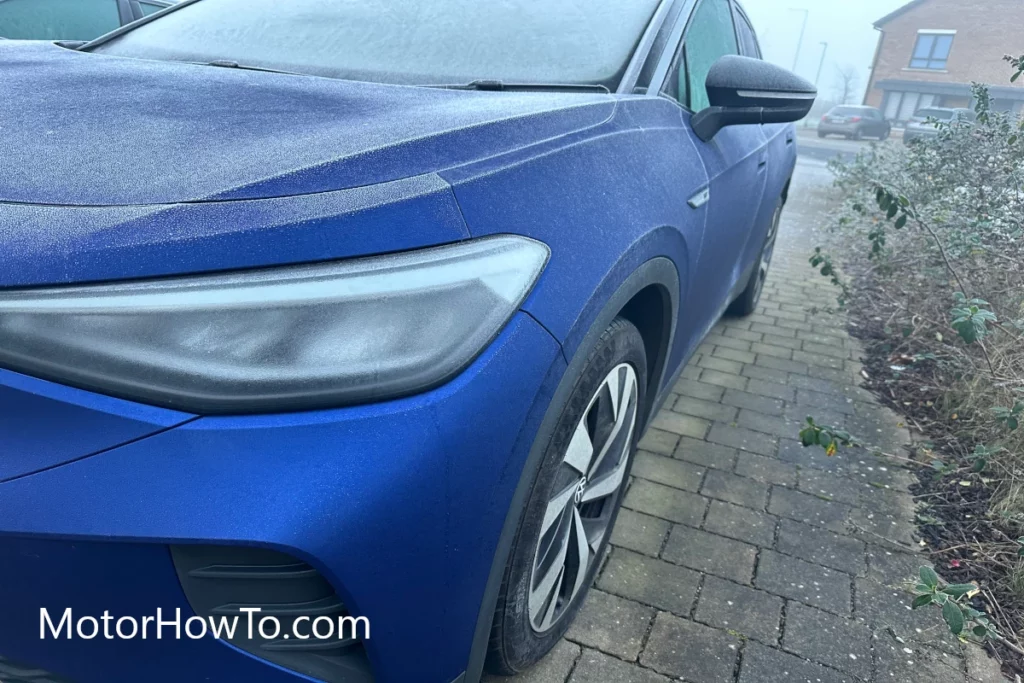Ensuring the longevity and peak performance of your Volkswagen ID electric vehicle requires a consistent and tailored maintenance schedule.
Unlike traditional gasoline vehicles, electric cars like the VW ID series offer unique maintenance needs.
Embracing these requirements enhances the driving experience and preserves the vehicle’s value over time.
In this article, we delve into the specific maintenance needs of the VW ID, offering insights and guidelines to help you keep your electric vehicle in top condition.
For optimal upkeep of your VW ID, following a maintenance schedule that includes regular checks every 10,000 miles or annually, whichever comes first, is recommended. This includes tire checks, brake inspections, battery health assessments and software update.

In the following sections of the article, readers will be guided through a comprehensive journey of maintaining their VW ID.
From understanding the unique aspects of electric vehicle care to practical tips on keeping your VW ID running smoothly, the article covers all facets of maintenance.
You’ll learn about the importance of each maintenance task, how to identify potential issues, and when to seek professional assistance, ensuring your VW ID remains a reliable and efficient companion on the road.
Related:
- Navigating Common Issues in VW ID Vehicles (Troubleshooting Tips)
- Maximizing Battery Life in Your VW ID (Maintenance and Care Tips)
- Understanding Software Updates for VW ID (Features & Benefits)
Regular Check-Ups and Their Importance
Regular check-ups play a pivotal role in maintaining the health and performance of your Volkswagen ID.
These routine inspections are not just a formality but essential for identifying potential issues before they escalate into major problems.
In the world of electric vehicles (EVs), where the technology is rapidly evolving, staying on top of maintenance ensures that your vehicle operates at its best.
Early Detection of Issues
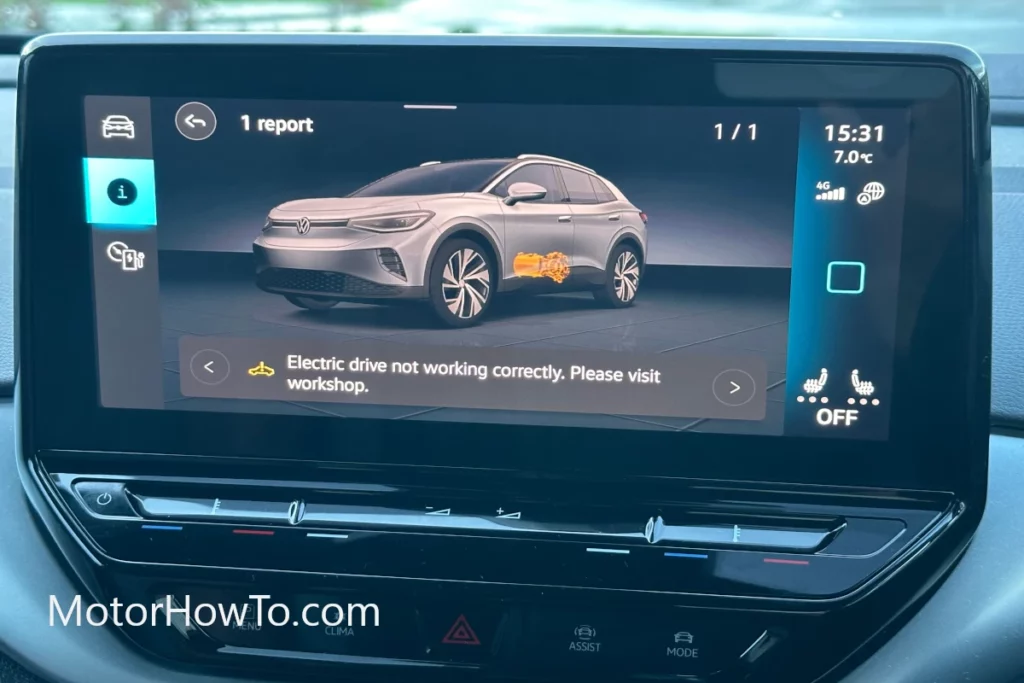
One of the primary benefits of regular check-ups is the early detection of issues.
During these inspections, technicians can spot signs of wear and tear that might not be immediately apparent to the average driver.
This early detection can save you time and money in the long run by addressing small problems before they become larger, more expensive ones.
Battery Health
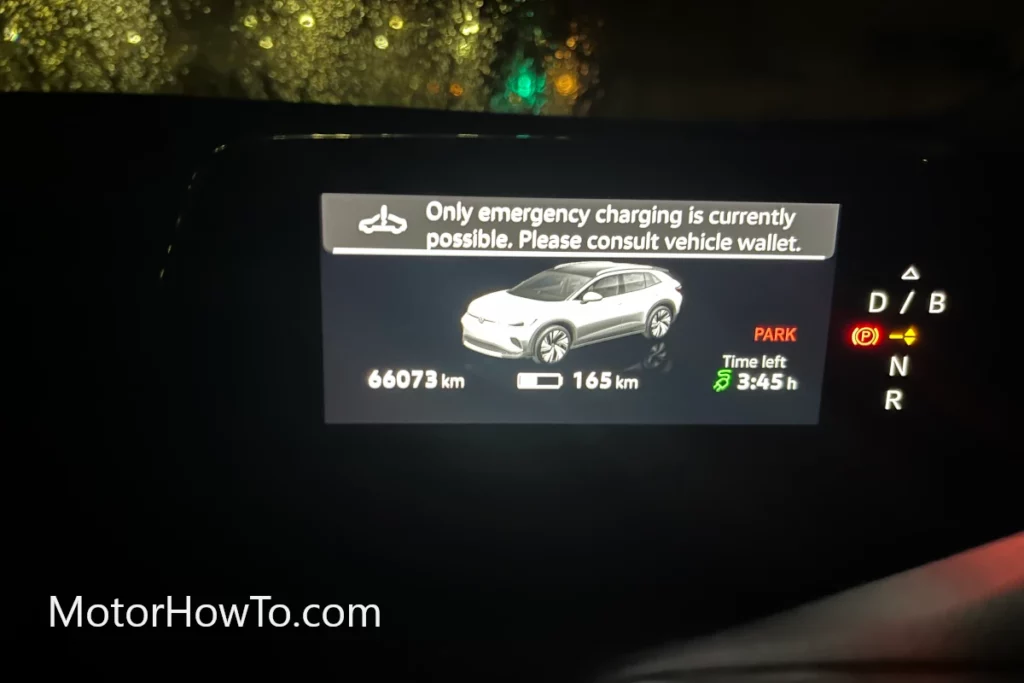
The battery is the heart of your VW ID, and its health is crucial for the vehicle’s overall performance.
Regular check-ups include battery inspections to ensure it’s operating efficiently.
These inspections can reveal any degradation in battery capacity or issues with charging, which are vital for the range and reliability of your EV.
Software Updates
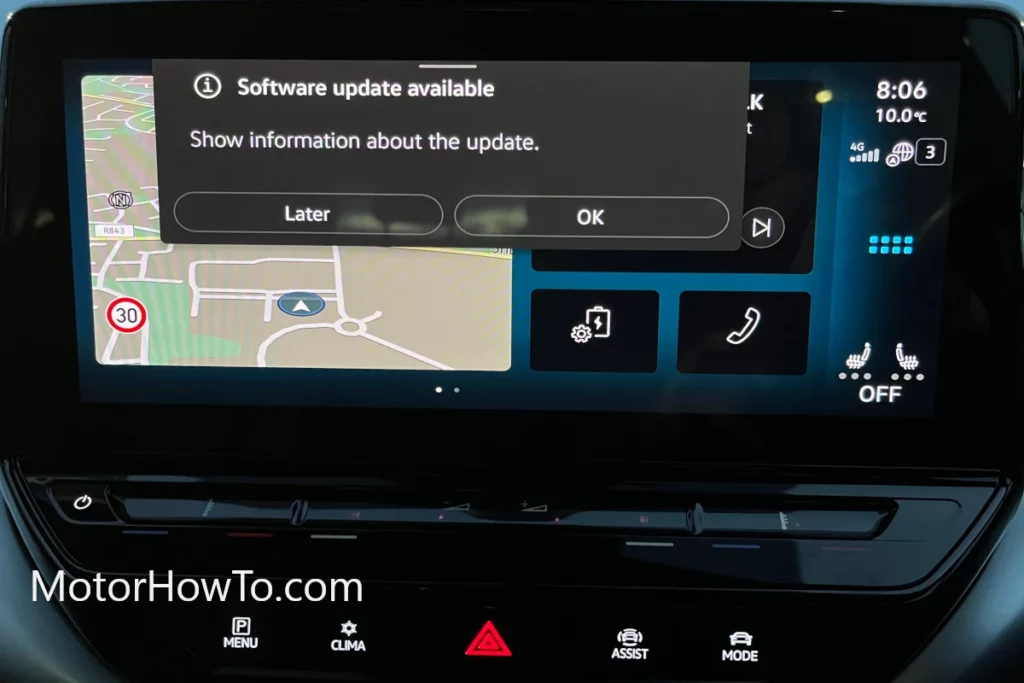
With the advancements in EVs, software updates are a regular part of maintenance.
These updates can enhance the performance, efficiency, and safety features of your VW ID.
Regular check-ups ensure that your vehicle’s software is up-to-date, taking advantage of the latest improvements and bug fixes.
Tire Wear and Alignment

Electric vehicles like the VW ID can have different wear patterns on tires due to their weight distribution and torque characteristics.
Regular check-ups include tire inspections to ensure they wear evenly and are properly aligned.
This extends the life of your tires and maintains optimal driving performance and safety.
Maintaining Warranty and Value
Maintaining a regular maintenance schedule can also be important for maintaining your vehicle’s warranty.
Many manufacturers require proof of regular maintenance to keep the warranty valid.
Additionally, a well-maintained vehicle retains its value better over time, which is crucial if you plan to resell or trade in your VW ID.
Regular check-ups are an integral part of owning a VW ID.
They help ensure your vehicle runs efficiently, safely, and reliably, providing peace of mind and enhancing your driving experience.
By understanding the importance of these routine inspections and incorporating them into your vehicle care routine, you can enjoy the full benefits of electric vehicle ownership.
Battery Care and Longevity
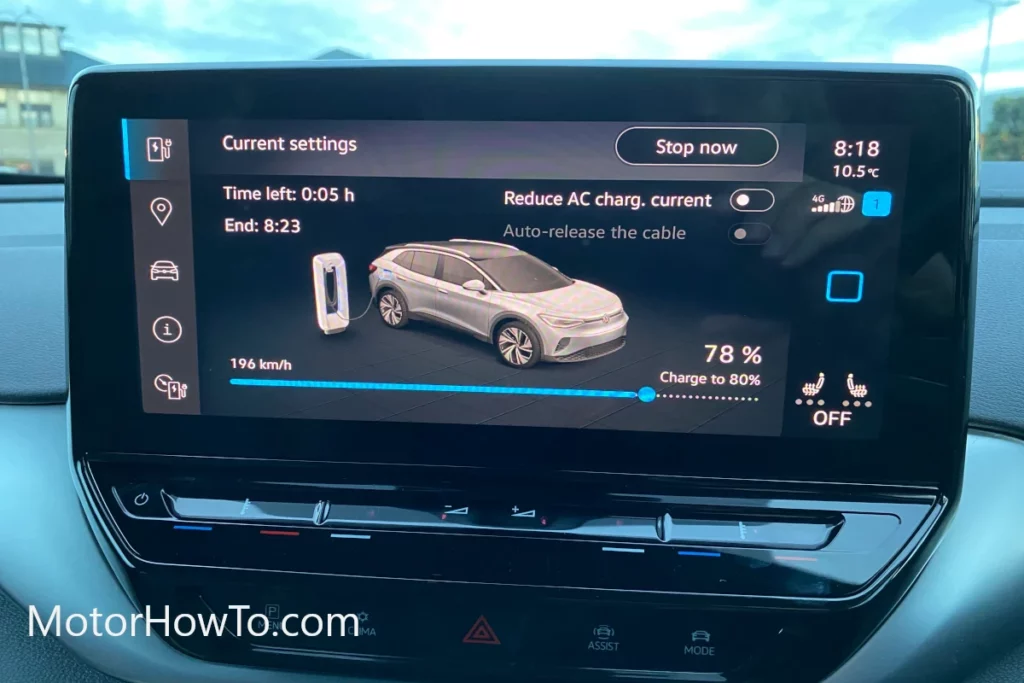
The battery is the lifeblood of your Volkswagen ID, and its care is crucial for the longevity and efficiency of your electric vehicle (EV).
Proper battery maintenance not only ensures a longer lifespan but also maximizes performance. Here are key aspects and tips for maintaining your VW ID’s battery health:
Understanding Battery Degradation
- Natural Wear and Tear: Like all batteries, the one in your VW ID will naturally degrade over time. This degradation affects the range and performance of the vehicle.
- Factors Affecting Battery Health: External factors such as extreme temperatures, driving habits, and charging patterns can significantly impact battery longevity.
Optimal Charging Practices
- Avoid Consistent Full Charging: Continuously charging the battery 100% can accelerate degradation. Aim for a charge level between 80-90% for regular use.
- Minimize Fast Charging: While fast charging is convenient, frequent use can stress the battery. Reserve it for long trips or when necessary.
- Regular, Shorter Charges: Short, regular charging sessions are preferable to long, infrequent ones. This approach is gentler on the battery.
Temperature Management
- Avoid Extreme Temperatures: Extreme cold or heat can harm your battery. Whenever possible, park in temperature-controlled environments.
- Preconditioning: Use the VW ID’s preconditioning feature to bring the battery to an optimal temperature before driving, especially in extreme weather conditions.
Driving Habits
- Gentle Acceleration: Aggressive driving and rapid acceleration can strain the battery. Gentle and consistent driving helps maintain battery health.
- Regenerative Braking: Utilize the regenerative braking system of your VW ID. This saves on brake wear and helps recharge the battery, albeit slightly.
Regular Battery Health Checks
- Professional Inspections: Regular professional check-ups are vital. Technicians can assess the battery’s condition and perform necessary maintenance or updates.
- Software Updates: Keep your vehicle’s software updated. Updates can improve battery management systems and overall efficiency.
Long-Term Storage Considerations
- Optimal Charge Level: If storing your VW ID for an extended period, keep the battery charged to around 50%. This level is ideal for battery health during inactivity.
By following these guidelines, you can significantly extend the life of your VW ID’s battery, ensuring that your vehicle remains efficient, reliable, and enjoyable to drive.
Battery care is an ongoing process, and staying informed about the latest best practices is key to maximizing your EV’s potential.
Tire Maintenance for Optimal Performance
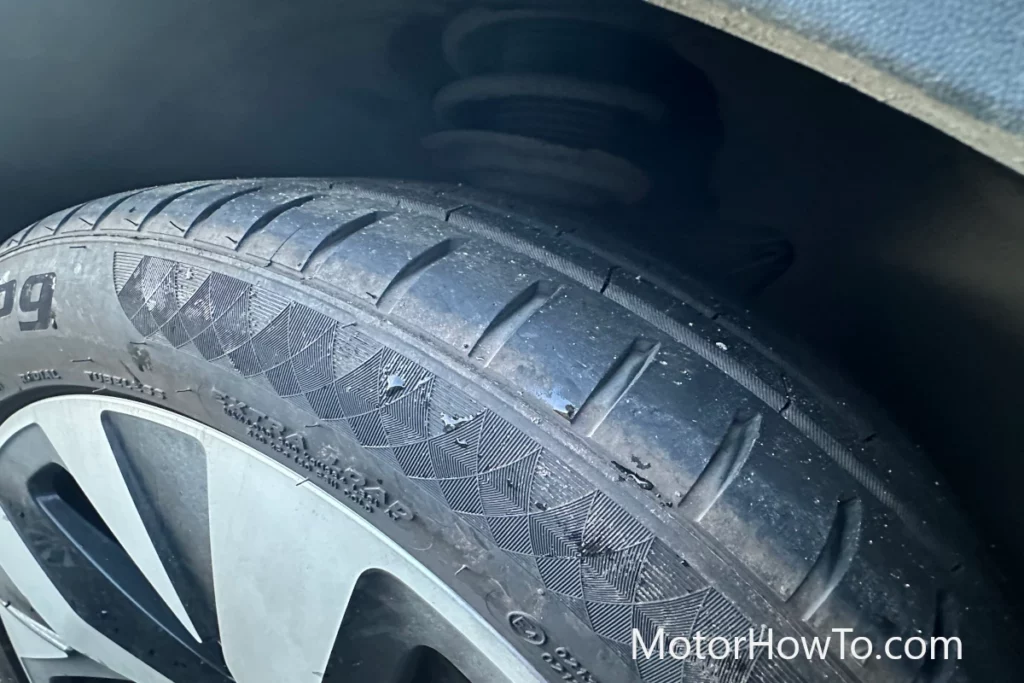
Maintaining the tires on your Volkswagen ID is crucial for ensuring the vehicle’s safety, efficiency, and overall performance.
Given the unique characteristics of electric vehicles (EVs), such as the VW ID, special attention must be paid to tire maintenance. Here’s how you can keep your tires in top condition:
Regular Tire Inspections
Performing regular checks on your tires is essential.
This includes examining the tread depth to ensure it’s within legal safety limits and conducting visual inspections for any signs of uneven wear, cuts, bulges, or other damage. These checks help identify issues early, preventing more serious problems.
Understanding EV Tire Wear
The instant torque delivery common in EVs, including the VW ID, can lead to faster tire wear than traditional vehicles.
Additionally, the heavier weight of EVs, due to their batteries, also contributes to quicker wear.
Awareness of these factors is key to effectively understanding and managing your tire maintenance schedule.
Tire Pressure Maintenance
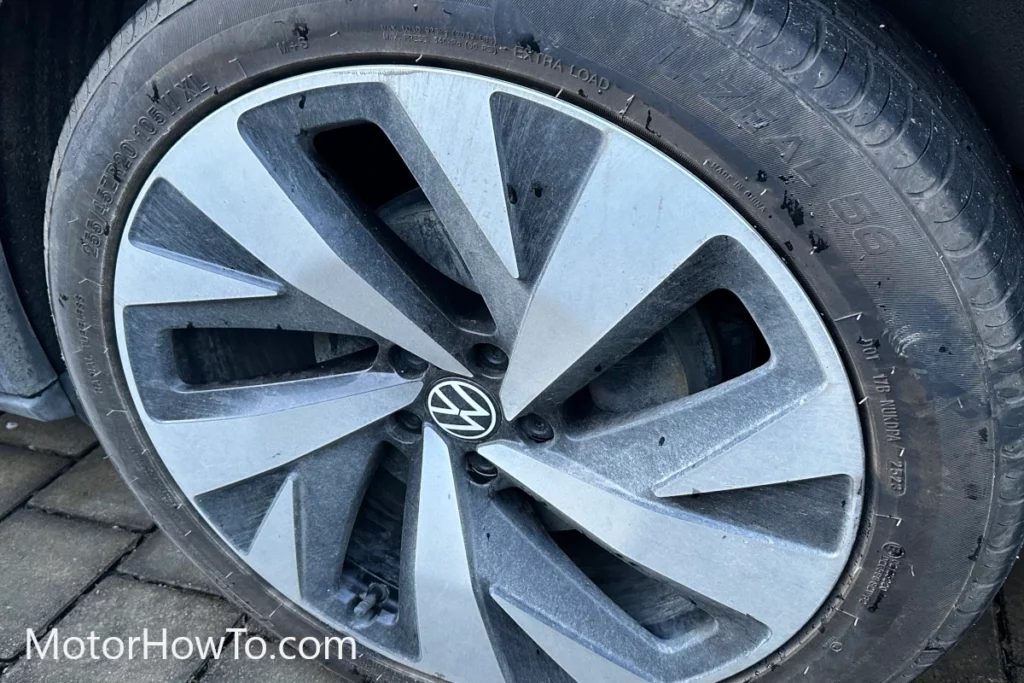
Maintaining the correct tire pressure is not only a safety measure but also affects the efficiency of your vehicle.
Underinflated or overinflated tires can increase wear, reduce range, and cause safety risks.
Regularly checking the tire pressure, ideally once a month, is crucial for optimal performance.
Rotating Tires Regularly
To achieve uniform wear and extend the life of your tires, rotate them according to the manufacturer’s recommendations or every 6,000 to 8,000 miles.
Following the correct rotation pattern, which can vary based on your tire type and vehicle’s drivetrain, is also important for even wear.
Choosing the Right Tires
Using tires that are specifically designed for electric vehicles can be beneficial.
These tires are tailored to handle EVs’ increased weight and torque and can offer better performance and longevity.
Additionally, if you live in an area with severe winter conditions, consider investing in winter tires for improved traction and safety.
Professional Alignment and Balancing
Properly aligning your wheels is crucial for even tire wear and optimal handling.
If you notice uneven wear or the vehicle pulls to one side, an alignment should be done.
Similarly, wheel balancing should be performed periodically to prevent vibration and uneven wear.
By following these guidelines for tire maintenance, you can ensure that your Volkswagen ID remains safe, efficient, and enjoyable to drive.
Regular attention and care towards your tires are key to maximizing the performance and longevity of your electric vehicle.



